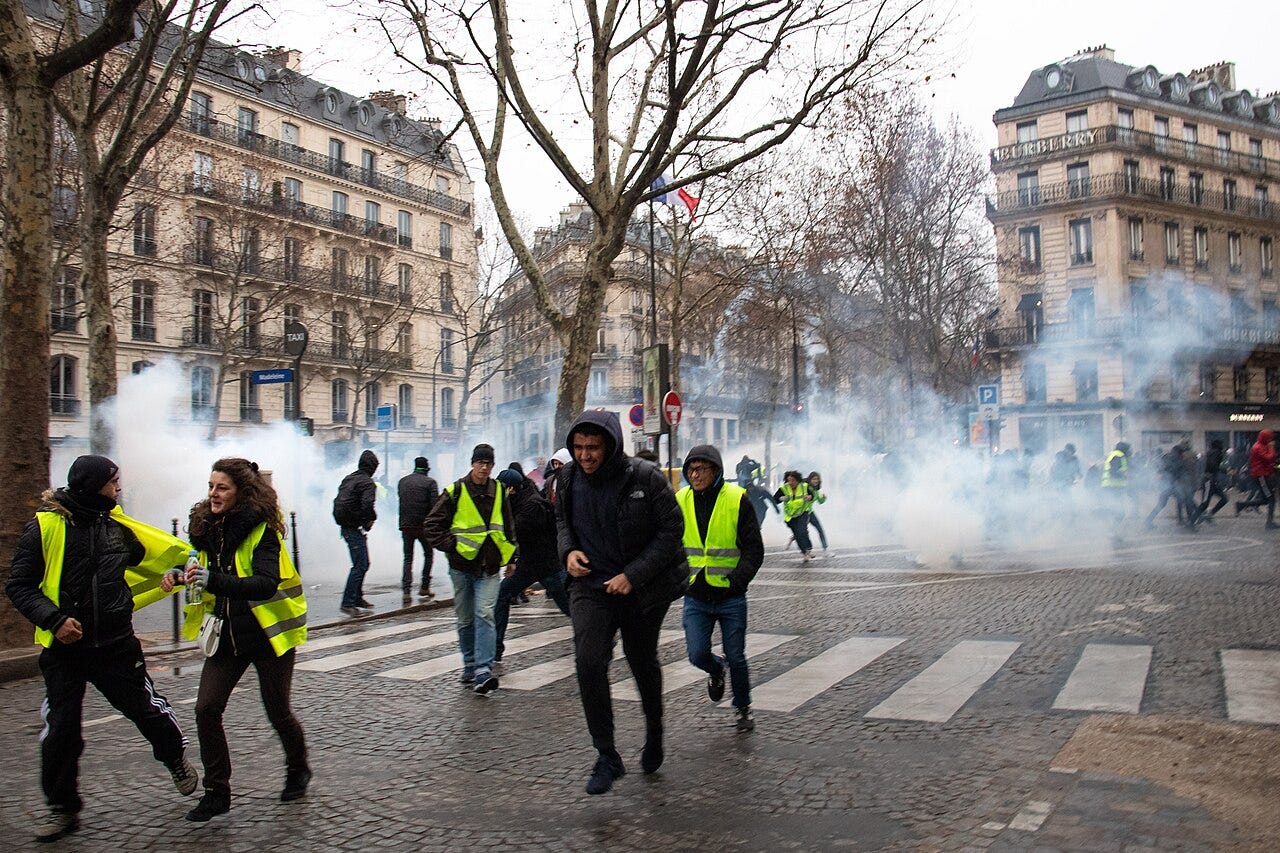The spectre of 'gilets jaunes' returns
Revolt over gasoline price hikes could lead to carbon price rebellion
Welcome to Carbon Risk — helping investors navigate 'The Currency of Decarbonisation'! 🏭
If you haven’t already subscribed please click on the link below, or try a 7-day free trial giving you full access. By subscribing you’ll join more than 3,000 people who already read Carbon Risk. Check out what other subscribers are saying.
You can also follow my posts on LinkedIn. The Carbon Risk referral program means you get rewarded for sharing the articles. Once you’ve read this article be sure to check out the table of contents.
Thanks for reading Carbon Risk and sharing my work! 🔥

Estimated reading time ~ 8 mins
"There are three things that move the needle in this country: politics, religion, and gas prices. It's incredible what gas prices do to American psychology. We love cheap gas." - Denton Cinquegrana, OPIS
The price of gasoline plays an outsized role in shaping consumer sentiment.
The cost of filling up is one of the largest components of consumer spending, and is typically one of the highest individual weightings when measuring the cost of living. Frequent purchases mean that changes in the price of gasoline are highly visible.
A rapid increase in the price has a dramatic and immediate impact on motorists perception of how well their individual finances are holding up, while also exacerbating fears about the state of the economy. In short, its no wonder that the price of gasoline is perhaps the most politically sensitive economic indicator there is.1
A return to the ballot box in the United States this November, and sometime before 20th October 2025 in Canada, has opposition parties ire focused on the upward trend in gasoline prices. Although individual states and federal governments have very little impact on the overall price of gasoline, that doesn’t stop those who wish to assume power from questioning the economic competency of the incumbent leader, and his or her administration.
The future of carbon pricing in North America, Europe and elsewhere could pivot on decisions made in Washington State, located in the Pacific Northwest region of the US. It’s carbon market, only the second state-wide emissions trading scheme in US history after California, is close to seeing its legislation repealed after only 15 months of operation. The culprit: the perceived impact of carbon prices on the cost of gasoline across the state (see Everything you need to know about Washington State's "Cap-and-Invest" carbon market).
Whether the Washington State carbon market continues as it is, establishes a link with California and Quebec, or abandons carbon pricing completely is likely to have an impact on whether New York and other north-eastern states implement their own cap-and-trade schemes. Together, the three states - California, Washington State, and New York - account for one-quarter of the US economy.
Across the border, Canada’s national carbon price rises 23% this week to C$80 per tonne. Opposition to carbon pricing may increase further if it leads to higher gasoline prices. The recent obfuscation over the national carbon price may well have led to a loss of trust in the ruling party’s claims over the impact.
Finally, it could also have implications across the Atlantic where EU Parliamentary elections are scheduled to take place in June, and the EU is about to press ahead with implementing EU ETS II. In 2025 the bloc will begin to expand carbon pricing via a separate cap-and-trade market that covers road transport and buildings (see Europe must learn from Canada's 'price on pollution' debacle).
* Offer expires Saturday 6th April *



